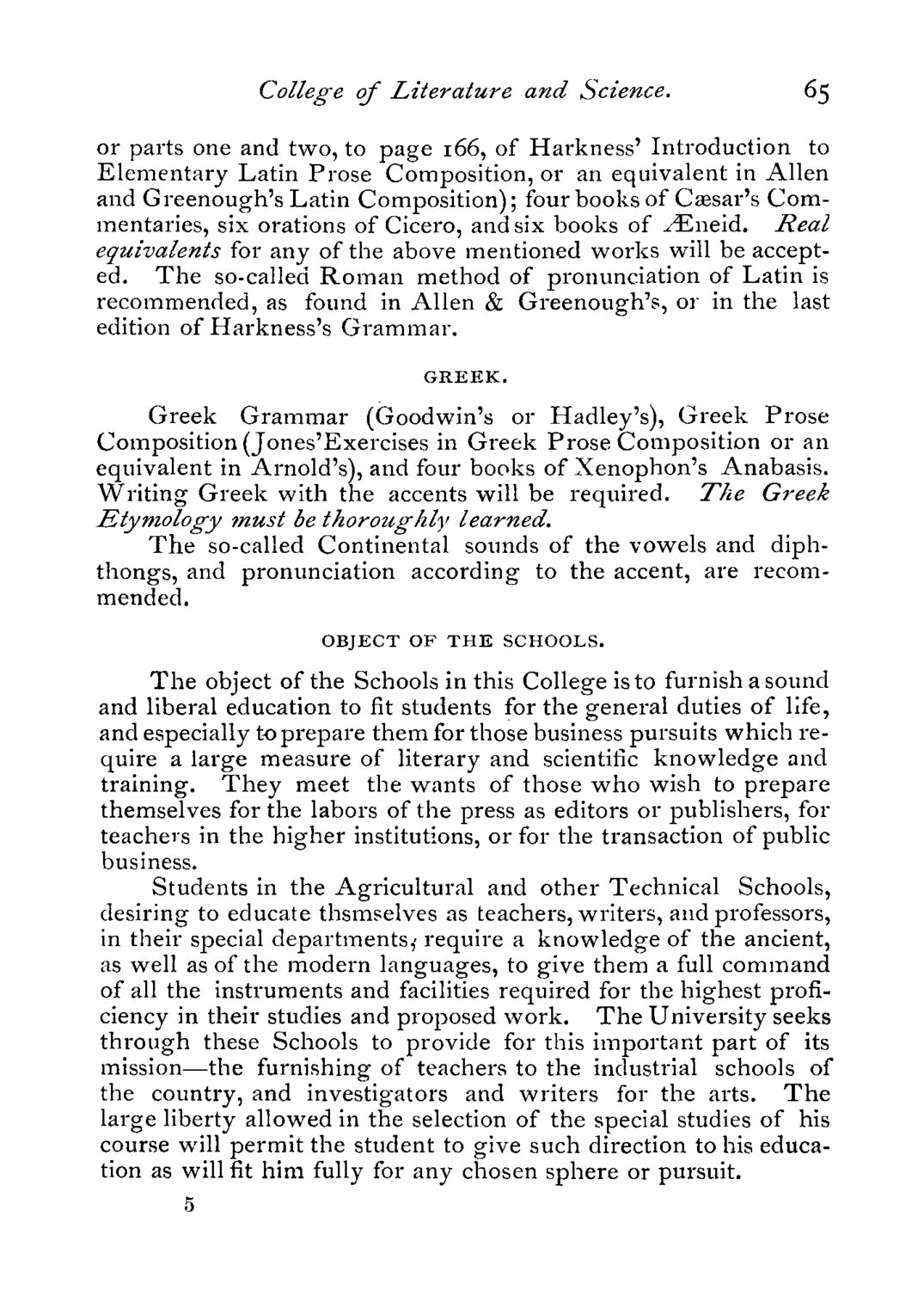| |
| |
Caption: Course Catalog - 1880-1881
This is a reduced-resolution page image for fast online browsing.

EXTRACTED TEXT FROM PAGE:
College of Literature and Science. 65 or parts one and two, to page 166, of Harkness' Introduction to Elementary Latin Prose Composition, or an equivalent in Allen and Greenough's Latin Composition); four books of Cassar's Commentaries, six orations of Cicero, and six books of yEneid. Real equivalents for any of the above mentioned works will be accepted. The so-called Roman method of pronunciation of Latin is recommended, as found in Allen & Greenough's, or in the last edition of Harkness's Grammar. GREEK. Greek Grammar (Goodwin's or Hadley's), Greek Prose Composition (Jones'Exercises in Greek Prose Composition or an equivalent in Arnold's), and four books of Xenophon's Anabasis. Writing Greek with the accents will be required. The Greek Etymology must be thoroughly learned. The so-called Continental sounds of the vowels and diphthongs, and pronunciation according to the accent, are recommended. OBJECT OF THE SCHOOLS. The object of the Schools in this College is to furnish a sound and liberal education to fit students for the general duties of life, and especially to prepare them for those business pursuits which require a large measure of literary and scientific knowledge and training. They meet the wants of those who wish to prepare themselves for the labors of the press as editors or publishers, for teachers in the higher institutions, or for the transaction of public business. Students in the Agricultural and other Technical Schools, desiring to educate thsmselves as teachers, writers, and professors, in their special departments,' require a knowledge of the ancient, as well as of the modern languages, to give them a full command of all the instruments and facilities required for the highest proficiency in their studies and proposed work. The University seeks through these Schools to provide for this important part of its mission—the furnishing of teachers to the industrial schools of the country, and investigators and writers for the arts. The large liberty allowed in the selection of the special studies of his course will permit the student to give such direction to his education as will fit him fully for any chosen sphere or pursuit.
| |